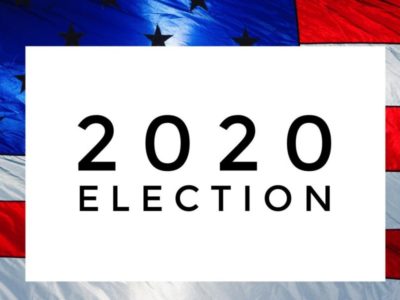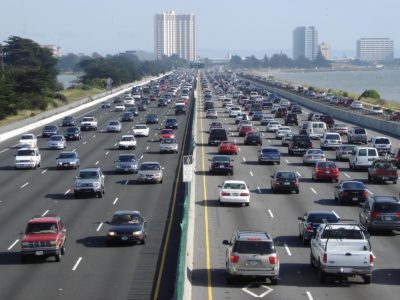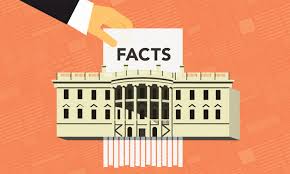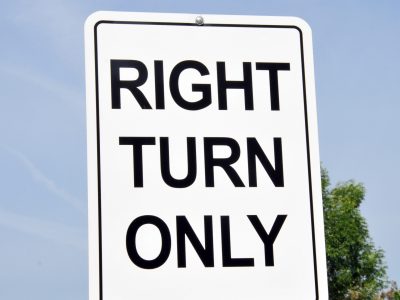Regulatory Policy
Seven Months to Election Day (and Counting)
You may have forgotten, but the clock is still ticking.
You may not have been focused on this, but there will be a Presidential election seven months from today. The stakes are enormous for environmental law. In fact, those stakes can be measured in megatons of carbon. There’s no question about Trump’s approach to environmental regulation. As of the beginning of this year, ninety-five environmental rollbacks …
Continue reading “Seven Months to Election Day (and Counting)”
CONTINUE READINGIs Saving Lives Unconstitutional? A Response to John Yoo
Takings law is complicated, but the answer to this question is clear. The answer is no.
Like others on the extreme right, the Hoover Institution is campaigning against “stay at home” orders because they cost too much money. Regrettably, the most recent argument to this effect on their website is by my colleague John Yoo. He argues that the Constitution requires states to compensate business owners for their losses. That’s simply …
Continue reading “Is Saving Lives Unconstitutional? A Response to John Yoo”
CONTINUE READINGInterpreting Models of Coronavirus Spread
Models are crucial to making policy decisions during the epidemic, but you have to know how to use them.
This post works through an exercise in how to use and interpret models of disease spread. Here are the takeaways for policy analysis: You need to know about a model’s sensitivity. Particularly in settings where the specific numbers really matter, such as forecasting how many hospital beds will be needed, it’s important to take into …
Continue reading “Interpreting Models of Coronavirus Spread”
CONTINUE READINGStill Not SAFE
The Trump administration moves ahead with plans to roll back Obama-era fuel economy standards.
After months of delay, the Trump administration has reportedly chosen this coming week—in the middle of a nationwide crisis due to the COVID-19 pandemic—to finally release the second part of its two-part rollback of Obama-era automotive fuel economy standards. This isn’t the only environmental rollback action the administration is planning to take during the coming …
Continue reading “Still Not SAFE”
CONTINUE READINGThe Environmental Pollution Agency Prioritizes Environmental Rollbacks While Dropping Environmental Enforcement
New Policy Allows Companies to Use Covid-19 As an Excuse to Pollute
The covid-19 epidemic is providing the Environmental Protection Agency with the perfect opportunity to demonstrate its priorities: full speed ahead with environmental roll backs, including greenhouse gas/fuel economy standards for cars, cutting back on the regulation of mercury from power plants, loosening regulations on coal ash from coal plants and more. Employees at EPA have …
CONTINUE READINGCourt Rejects Trump Administration’s Cap-and-Trade Lawsuit Against California
Federal Government’s Constitutional Challenge to California’s Linked GHG Reduction Plan Fails
Since President Trump took office in early 2017, the State of California has filed over 70 different lawsuits challenging the Trump Administration’s policy initiatives on multiple fronts, including the environment, immigration policy and health care. Over 40 of California’s lawsuits have targeted the Administration’s efforts to roll back longstanding federal environmental protection, natural resource management …
Continue reading “Court Rejects Trump Administration’s Cap-and-Trade Lawsuit Against California”
CONTINUE READINGThe Flight From Evidence-Based Regulation
This Administration specializes in arguments for ignoring the evidence.
The Trump Administration’s major deregulatory efforts share a common theme. They assiduously avoid having to rely on scientific or economic evidence. Confronting that evidence is time-consuming and difficult, particularly when it often comes out the other way. Instead, the Administration has come up with clever strategies to shut out the evidence. The effort to repeal …
Continue reading “The Flight From Evidence-Based Regulation”
CONTINUE READINGReducing Coronavirus Fatalities: A Cost-Benefit Analysis
Q: From an economic perspective, what’s it worth spending to curb the pandemic? A: A lot.
At an extremely rough estimate, it would be worth spending about $4 trillion to cut the coronavirus death rate in half.
CONTINUE READINGThe Right Wing’s Views of Coronavirus and Climate Change
There’s a common theme: “nothing to worry about, folks.”
It’s interesting to see what conservative think tanks are saying about the coronavirus and compare it with their views on climate change. There are some common themes — both problems tend to get downplayed, along with any possible need for major government action. Like Trump himself, the conservative think tanks seem unable to process scientific …
Continue reading “The Right Wing’s Views of Coronavirus and Climate Change”
CONTINUE READINGAn Easy, No-Fuss, Climate Fix for that Big First Day in Office
No, not rejoining the Paris Agreement, though that’s a good idea too. Something else.
This is kind of like one of those recipe things you see: putting a gourmet meal on the table in five minutes. But it’s more like: the one ingredient that will make all your recipes come out better. More seriously, what I’m about to propose is very conventional, easily integrated into agency procedures, and a …
Continue reading “An Easy, No-Fuss, Climate Fix for that Big First Day in Office”
CONTINUE READING












